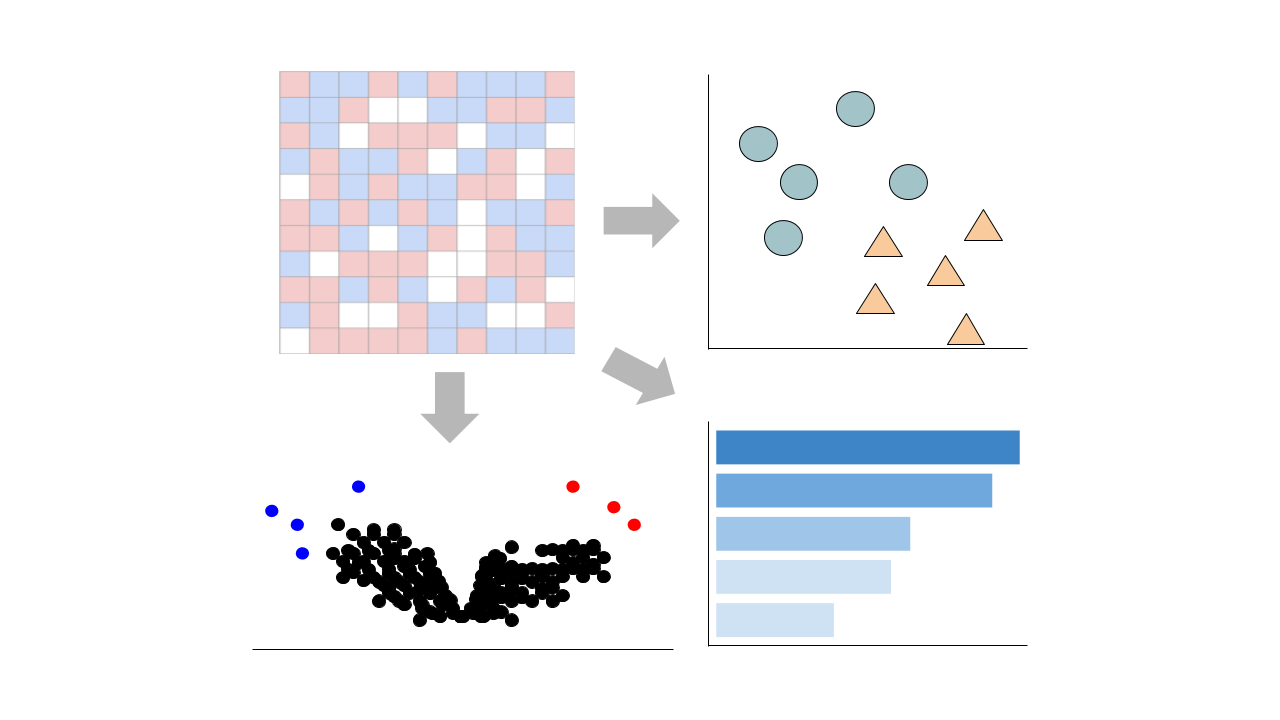 Gene counts are sourced from ARCHS4, which provides uniform alignment of GEO samples.
You can learn more about ARCHS4 and its pipeline here.
Gene counts are sourced from ARCHS4, which provides uniform alignment of GEO samples.
You can learn more about ARCHS4 and its pipeline here.
Select conditions below to toggle them from the plot:
| GROUP | CONDITION | SAMPLES |
|---|---|---|
| Breast cancer |
GSM4552759 GSM4552760 GSM4552761 GSM4552762 GSM4552763 GSM4552764
|
|
|
GSM4552765 GSM4552766 GSM4552767 GSM4552768 GSM4552769 GSM4552770 GSM4552771
|
Submission Date: May 14, 2020
Summary: We report the application of RNA-sequencing for high-throughput profiling of transcriptomes in tumor tissues from patients with breast cancer and diabetes, and in tumor tissues from breast cancer patients without diabetes.
GEO Accession ID: GSE150586
PMID: No Pubmed ID
Submission Date: May 14, 2020
Summary: We report the application of RNA-sequencing for high-throughput profiling of transcriptomes in tumor tissues from patients with breast cancer and diabetes, and in tumor tissues from breast cancer patients without diabetes.
GEO Accession ID: GSE150586
PMID: No Pubmed ID
Visualize Samples
 Visualizations are precomputed using the Python package scanpy on the top 5000 most variable genes.
Visualizations are precomputed using the Python package scanpy on the top 5000 most variable genes.
Precomputed Differential Gene Expression
 Differential expression signatures are automatically computed using the limma R package.
More options for differential expression are available to compute below.
Differential expression signatures are automatically computed using the limma R package.
More options for differential expression are available to compute below.
Signatures:
Select conditions:
Control Condition
Perturbation Condition
Only conditions with at least 1 replicate are available to select
 Differential expression signatures can be computed using DESeq2 or characteristic direction.
Differential expression signatures can be computed using DESeq2 or characteristic direction.
This pipeline enables you to analyze and visualize your bulk RNA sequencing datasets with an array of downstream analysis and visualization tools. The pipeline includes: PCA analysis, Clustergrammer interactive heatmap, library size analysis, differential gene expression analysis, enrichment analysis, and L1000 small molecule search.

 Chatbot
Chatbot Single Gene Queries
Single Gene Queries
 Gene Set Queries
Gene Set Queries
 Bulk Studies
Bulk Studies
 Single Cell Studies
Single Cell Studies
 Hypotheses
Hypotheses
 Resources
Resources
 Contribute
Contribute
 Downloads
Downloads About
About
 Help
Help